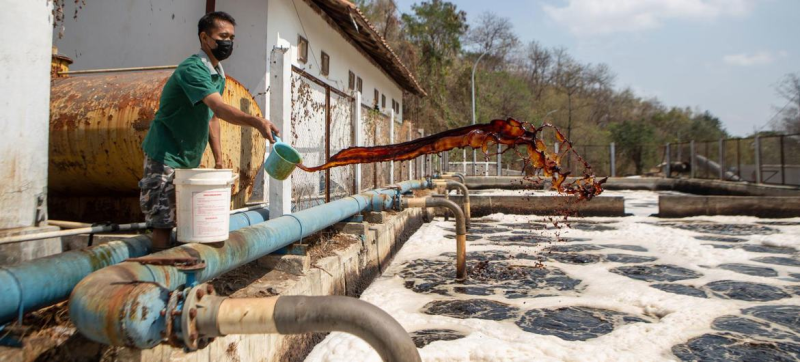- Tk 500cr Drive to Turn Haor Fallow Land Into Farmland |
- Tarique Rahman returns home amid rapturous reception |
- Home After 17 Years: Tarique Returns to Gulshan Residence |
- Tarique Calls for United Effort to Build a Safe Bangladesh |
- Tarique leaves for 300 feet area from airport |
Indonesia’s innovative faith-based finance drives SDG progress

Faith-based financing has supported projects to clean up sanitation and landfill services in Yogyakarta, Indonesia.
Indonesia is relying on innovative financing approaches to achieve the Sustainable Development Goals (SDGs) — the internationally agreed targets to end poverty, hunger, inequality, fight climate change, and preserve the planet.
Over the past seven years, the Southeast Asian nation has raised nearly $12 billion through thematic bonds, including blue bonds and Islamic finance instruments.
These efforts have been supported by development partners, including the United Nations.
Putut Hari Satyaka, Deputy Minister for Development Financing and Investment at Indonesia’s Ministry of National Development Planning (Bappenas), spoke ahead of a key UN conference on financing for development starting on 30 June in Seville.
Indonesia faces a significant SDG financing gap, like many developing countries. To fully achieve all 17 goals, an estimated $4.2 trillion is needed, leaving a $1.7 trillion funding shortfall.
“We need an integrated, transformative approach beyond business as usual,” Satyaka said. This includes making public finances more efficient, resilient, and transparent by aligning budgets with SDG targets and prioritizing sectors with transformative impacts.
He also stressed the importance of creativity and innovation — scaling up existing financing methods and exploring new ones, such as blended finance, thematic bonds, and faith-based financing.
Indonesia has created a strong ecosystem for these instruments, attracting diverse stakeholders and supporting enabling regulations.
In Indonesia’s context, faith-based financing largely follows Islamic Sharia principles. With 85% of the population Muslim, faith-based social financing like zakat and waqf are deeply rooted traditions.
What’s new is directing these instruments toward the SDGs. Indonesia is advancing Sharia finance as part of its inclusive growth agenda, with Sharia financing growing 14% annually — faster than conventional finance.
Green sukuk, Sharia-compliant bonds financing environmentally friendly projects, highlight this progress. Indonesia issued the world’s first sovereign green sukuk in 2018, raising $1.25 billion for renewable energy and climate adaptation.
Between 2019 and 2023, approximately $1.4 billion was raised domestically through retail green sukuk, engaging individual investors in climate finance.
Indonesia sees vast potential in Islamic Social Financing, with zakat estimated at $18–25 billion annually, though actual collection is below 5%.
Satyaka highlighted key lessons: raising awareness is essential to increase participation; strong coordination among stakeholders is crucial to avoid overlaps; and building public trust through transparency, accountability, and communication is fundamental.

